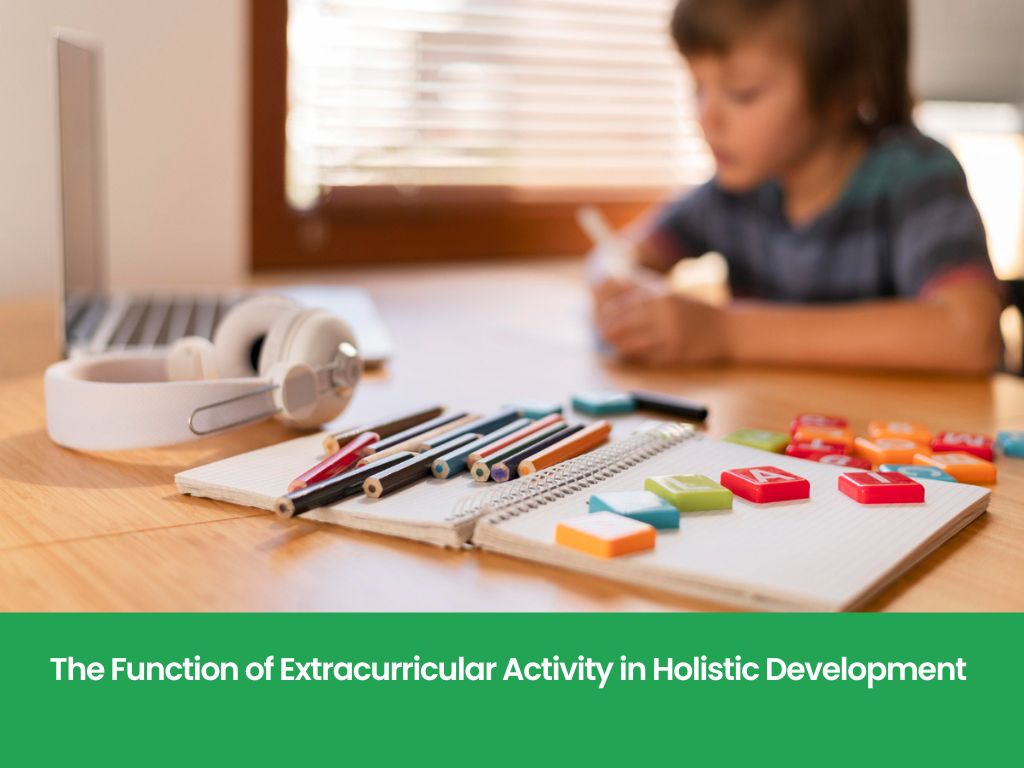Introduction
Given the highly competitive and fast-paced world today, education cannot be confined within the walls of the traditional classroom. Students must be well-rounded, capable of addressing not only the intellectual types but also emotional, social, and creative ones. This is where extracurricular activities come into play — as essential instruments in unleashing the best in students and in all-around development. Apart from being enjoyable and enriching, these activities are also crucial in building character, developing soft skills, and imparting skills to students in order to address real-life concerns.
What is meant by holistic student development?
Holistic development is to cultivate each aspect of a student’s development — academic, emotional, social, physical, and moral. The aim is to create students who are not only academically competent, but also resilient, creative, empathetic, and a team player. Holistic education recognizes that academic success comes not solely from intellectual ability, but also from integrity, self-esteem, and teamwork skills.
How Extracurricular Activities Enhance Academics
While classrooms and textbooks focus on knowledge transfer, extracurricular activities offer the chance to apply the knowledge in real, diverse situations. A student participating in a science fair, for instance, learns not only science concepts, but also how to present results, accept feedback, and communicate confidently to others.
Sports, music, drama, arts, public speaking, and activity clubs like robotics or environment awareness not only teach outside the curriculum but also teach life skills like time management, responsibility, emotional intelligence, and leadership — all of which are essential to overall development.
Principal Benefits of Extracurricular Activities
1. Self-Esteem and Confidence
They develop confidence through achievement in other parts of their lives. A triumph in a football or a win in a painting contest is enough to establish self-esteem and the confidence to approach.
2. Improved Academic Performance
Research shows that students involved in extracurriculars often perform better academically. This is because they develop focus, discipline, and motivation — qualities that positively influence their study habits and classroom engagement.
3. Improved Social and Emotional Skills
Group work enables students to become good communicators and good listeners. They can relate to people, resolve conflicts peacefully, and function in groups. These are basic social skills that guarantee success in life as an adult.
4. Physical and Mental Well-being
Sports and physical education keep students fit, enhance their mood, and lower stress levels. Artistic interventions like music, dance, and theater provide an opportunity for emotional release, enhancing mental well-being and overall happiness.
Real-Life Application: Classroom to Life
Picture a shy, introverted student at the back of a classroom. Invited to join the school drama club, they start attending rehearsals on the stage, where they practice being more assertive and communicative. They become more communicative, assertive, and socially active over time — skills that will be applied in college, job interviews, and leadership positions.
The schools that invest in extracurricular activities are more likely to witness radical changes in students. Gyan Ashram School, being one of the Top School in Jaipur, is not an exception. Students who were unwilling to participate in public activities at first are now inter-school champions and representing the school at the state level. Not only do these victories expose them to new avenues, but they also hone their skills.
The Educator’s Role in the Promotion of Comprehensive Growth
Teachers and mentors are crucial in motivating students to pursue their passions. Teachers recognize each child’s potential and offer them a workspace, and they release potential which can otherwise remain untapped. Schools must ensure that their curriculum allocates adequate time and facilities for extracurricular activities and integrates them into education — and not as an afterthought.
During their stay at Gyan Ashram School, one of the Best Schools in Jaipur, the school time table is planned very carefully so that the studies can be balanced with a variety of co-curricular activities — from model UN conventions to music classes and green campaigns. With this blend, the students can excel in the classroom as well as outside.
Parent Involvement within the Extracurricular Experience
While opportunities can be developed through schools, parental involvement is equally important. Parents must encourage children to do something but not push them to do it. Supporting a child on the sidelines of a football match or attending a school exhibition can be the make-or-break for a child’s self-confidence. Being honest with interests, passion, and struggles makes students feel safe and challenged.
Conclusion: Life Preparation, Not Exam Life
The actual use of education is not to instruct students to pass tests, but to educate them for life. Extracurricular activities are the solution to that cause. They develop the required human qualities — empathy, determination, self-confidence, and imagination — which books can never provide. The students become well-rounded individuals ready to confront the world through various activities. By developing an even, student-focussed pedagogy that blends academics with value-based co-curricular activities, schools can actually promote overall development. And in doing so, schools such as Gyan Ashram School set an example for others to follow.

